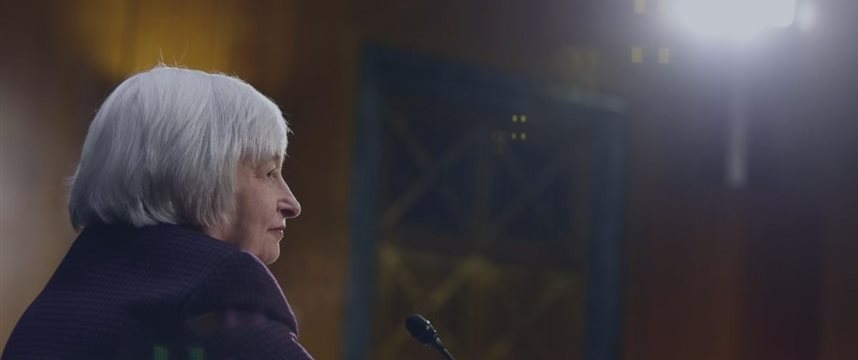In their hints at where rates are going, Fed officials are facing a communications challenge.
They want to reassure investors that rate liftoffs, when they come, are likely to be gradual and not harsh. At the same time, they want to avoid making promises, as in the past, about where rates are going, the Wall Street Journal says.
As a new Fed meeting looms this week, new signals could emerge on its longer-run outlook for interest rates. Fed officials will update their projections for where they expect rates to be at the end of 2015, 2016 and 2017. In March, officials projected rates would reach 3.125% by the end of 2017 and 3.75% in the long run.
And as the recent data on the U.S. economy was mixed, these projections could be shifted.
While investors have paid exceeding attention to the timing of the Fed’s first rate hike since 2006 (with many looking to September and not this week’s Fed meeting), policy makers have been trying to produce a tricky post-liftoff message about where rates are going in the long-term.
Many events haunted Fed officials during the past decade. 2013 “taper tantrum” was among them - that time the central bank signaled it was thinking about terminating a bond-purchase program that aimed to lower long-term rates. Investors' reaction was sharp pushing up long term rates and causing turmoils in emerging markets.
Earlier in the history, 1994 rate increased brought markets on the brink of panic. This time, Janet Yellen wants to avoid such consequences.
In her March speech in San Francisco, Yellen used the term “gradual” or “gradually” 14 times, a message
that could come up again in her news conference after Fed officials
release their policy statement Wednesday. As the current economic expansion seems vulnerable, Fed wants to evade fallout.
Investors seem to have digested her perspective. Yet, as the WSJ says, Fed officials, also haunted by the episode of their last cycle of
interest-rate increases, from 2004 to 2006, want to avoid going too far
with such assurances.
Some analysts believe policy makers locked themselves in an approach which is hardly appropriate for the economy and especially for the overheated housing sector.
“With the benefit of hindsight, one could argue that the Federal Reserve should have raised short-term interest rates more aggressively over this period,” William Dudley, president of the Federal Reserve Bank of New York, commented on the 2004-2006 rate cycle in a footnote to a speech in Minneapolis earlier June.
Analysts meanwhile note that although many Fed officials believe that gradual is likely to be the
order of the day, it could be hard for them to make that clear at a time when
they want to give themselves leeway to adjust differently if needed.
Once rate hikes have started, policymakers will need to decide whether Ms. Yellen’s canstant calls for gradualism make their way into the policy statement and become official central bank policy.



